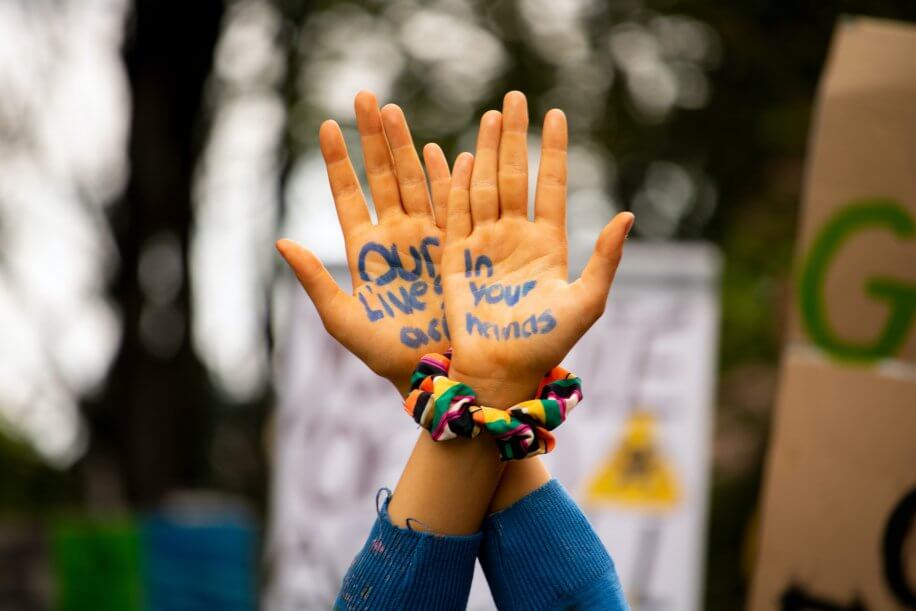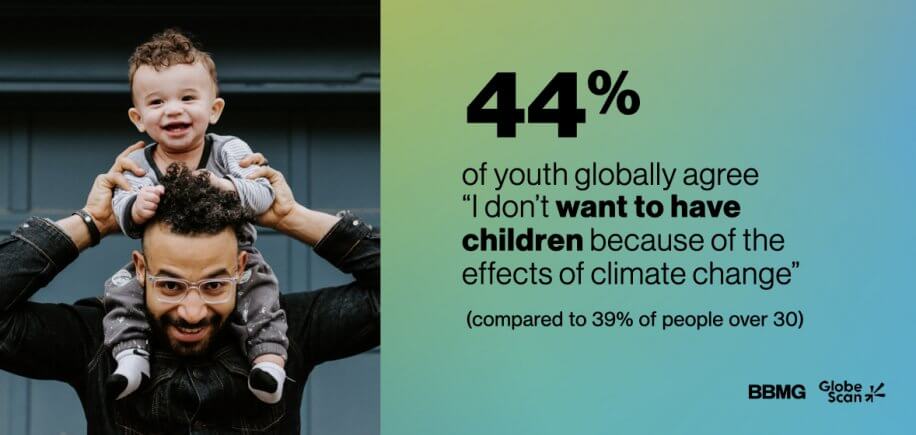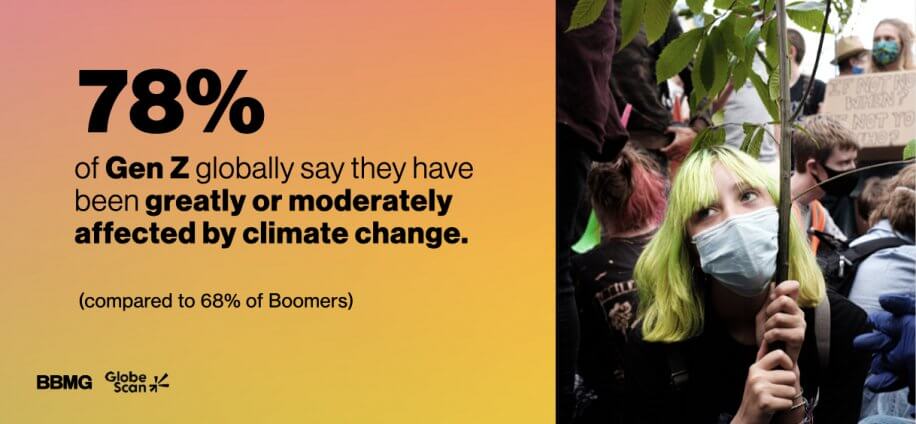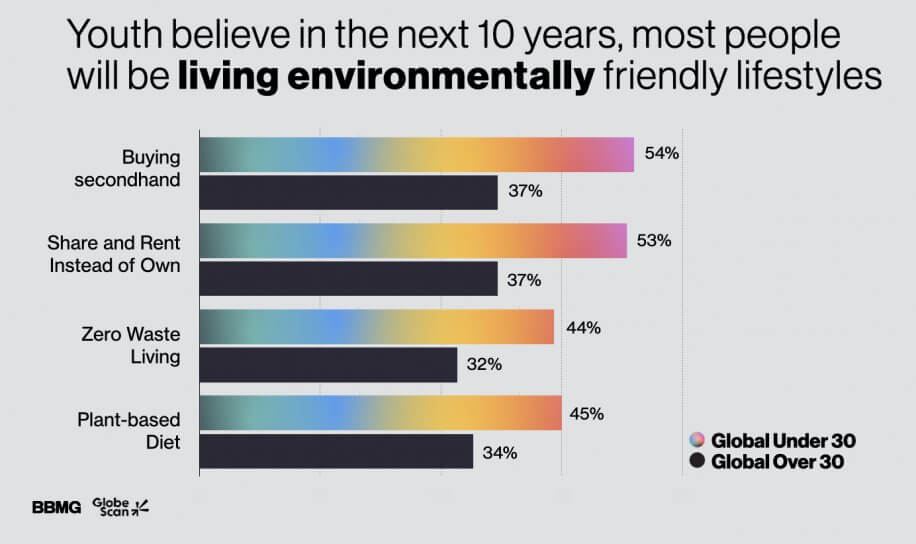Anxiety/Optimism: Youth and the Effects of Climate Change

New Data Shows Young People Feeling the Impacts of Climate Change, Hopeful for Progress, and Seeking Regenerative Brands
Throughout our reporting on the outlook of young people when it comes to global issues and the role of brands, one quote in particular really stuck with us. It was from a young woman named Kat who lives in Los Angeles and told us, “The climate crisis is one of the things that scares me the most. When I think about the future, I wonder if it is unethical to have kids because of that.”
Kat is not an outlier. The newest data from our partners at GlobeScan’s 2022 survey of 31,000 people in 31 international markets shows that 44 percent of people under age 30 globally agree “I don’t want to have children because of the effects of climate change,” compared to 39 percent of people over 30.

“What stood out to us this time in this particular research was that young people are sharing a much more personal experience with the impacts of global issues than we have observed before,” notes BBMG’s Raphael Bemporad. “Whether it’s discrimination, climate change, equality, mental health – these are issues that, perhaps in the past, were someday in the future, some other place where I’m not living. And now, these are issues that are being felt in their daily lives, in their own homes, communities and neighborhoods.”

Indeed the latest survey data shows a growing number of young people are personally impacted by climate change. 78 percent of Gen Z globally say they have greatly or moderately affected by climate change, compared to 68 percent of Boomers. In the USA, Gen Z is nearly four times more likely to say they personally have been greatly affected by climate change, compared to Boomers (52% to 14%, respectively).
This personal experience has many young people feeling guilty over how their lifestyles contribute negatively to the climate crisis. 61 percent of people under 30 globally say they “feel guilty about my negative impact on the environment,” compared to only 48 percent of people under 30. And in the USA, Gen Z is seven times more likely to strongly agree with that statement compared to Boomers (36% to 5%, respectively).
In spite of this, the study also shows that a majority of young people remain optimistic that in the next 10 years, most people will be living environmentally friendly lifestyles. Adopting circular consumer behaviors like secondhand shopping and renting, reducing waste, switching to a largely plant-based diet among other things. In fact, globally Gen Z is 2.4 times more likely to strongly agree “our children and grandchildren will have a higher quality of life than we do today” compared to Boomers (24% to 10%, respectively).

“Young people are growing impatient with incremental change,” says Bemporad. “What they’re looking for is brands to bring perspective, leadership, energy, resources, and influence to be part of the change that they seek.”
How to Become a Regenerative Brand
When corporate leaders from around the world gathered at the annual Sustainable Brands conference in San Diego to learn from sustainability and ESG experts, and from one another, it was clear that no longer is environmental and social governance and corporate social responsibility a nice to have, it’s absolutely table stakes for any brand that wants to stay relevant – or viable.
“A big false choice is leading with profit or impact. There is no business on a dead planet. We need to rethink the economy,” said Forum for the Future’s Sally Uren from the mainstage.
But how do brand leaders rethink the status quo and help to right the wrongs of a broken system?
To navigate this time of shifting paradigms, we believe brands need to take a regenerative approach to business. Regenerative Brands are a necessary evolution of “sustainable” and “resilient” brands, aspiring to create more positive impact rather than simply less harm.
Becoming a Regenerative Brand requires slowing down and taking a holistic approach to ensure the long term vitality of your business and the society we all share.
Regenerative Brands embody three qualities. They are:
- Aware: Sensing and serving the truest, deepest needs of people and society.
- Additive: Giving more than they take by playing a positive, generative role in an interconnected, living ecosystem.
- Alive: Creating energy and momentum in culture to shape who we are and how we live.
Learn More
For more global data, youth perspective, and insights from industry leaders and best-in-class brands, download the Leading Regenerative Brands report.


